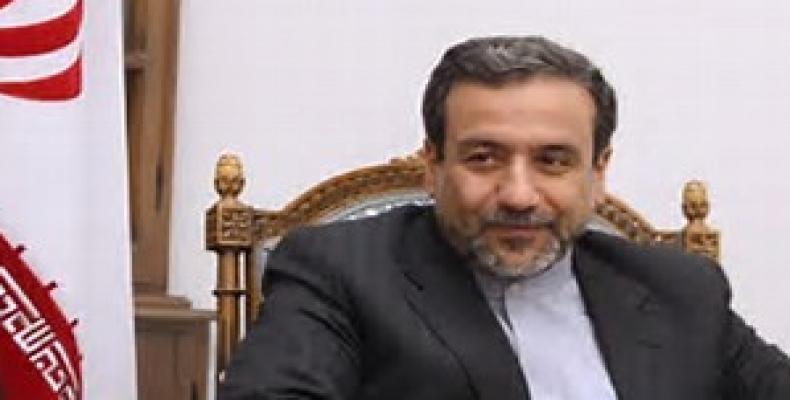Tehran, August 29 (RHC)-- The Iranian deputy foreign minister has rejected the possibility of any negotiations between Tehran and Washington, saying it would only happen when the U.S. returns to the 2015 multilateral nuclear deal, known as the Joint Comprehensive Plan of Action (JCPOA).
"We are only talking with the European countries over our specific 11 demands [based on the JCPOA] and we will not negotiate with the US," Seyyed Abbas Araqchi said in a TV interview on Wednesday night. He added that "no country would accept to enter negotiations while being under maximum pressure," because doing so would mean "surrender."
The top diplomat also reiterated that talks with the U.S. within the framework of the JCPOA would only materialize should Washington lift all of its sanctions against Iran. The remarks came a day after Iranian President Hassan Rouhani rejected a demand by French President Emmanuel Macron for a meeting with US President Donald Trump, arguing that Washington needs to lift all its bans if it really seeks negotiations with Tehran.
Araqchi further noted that Iran had accepted France's invitation to go to the city of Biarritz hosting a recent G-7 summit only on the condition that "there should be no talks or meetings, even accidental ones, with the American delegation."
The deputy foreign minister warned that if the Europeans fail to fully comply with their commitments under the nuclear agreement, Tehran will take the third step to reduce its JCPOA obligations.
Since May, Iran has been suspending some of its commitments under the JCPOA, which was clinched between the country and the P5+1 group of states -- the US, the UK, France, Russia, China, plus Germany -- in Vienna in 2015.
Tehran has rowed back on its nuclear commitments twice in compliance with articles 26 and 36 of the deal. Iran says its reciprocal measures will be reversible as soon as Europe finds practical ways to shield the Iranian economy from unilateral U.S. sanctions which were imposed last year when Trump withdrew from the accord.
The European countries have so far failed to uphold their commitments. They have expressed vocal support for the deal but failed to provide meaningful economic incentives as required under the nuclear agreement.
The Europeans have already missed a 60-day deadline set by Tehran, prompting Iran to go for the second phase of cutting its commitments on July 7, which marked the start of a second such deadline for them.
As a first step, Iran increased its enriched uranium stockpile to beyond the 300 kilograms set by the JCPOA. In the second step, Tehran began enriching uranium to purity rates beyond the JCPOA-limit of 3.76 percent.
Iran has warned that it may push forward with 20% uranium enrichment and resume previous activities at the Arak heavy water nuclear reactor in a third nuclear commitment containment.


